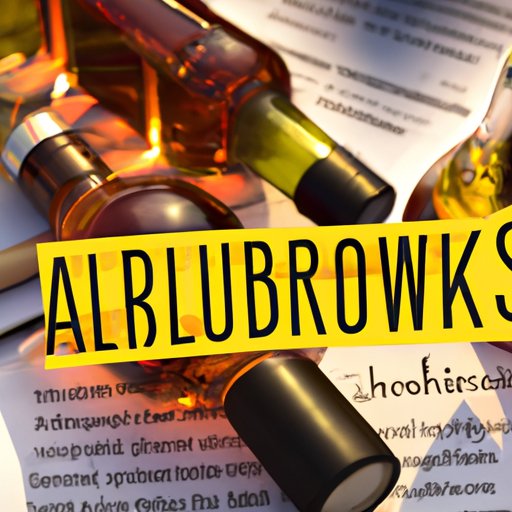Introduction
Alcohol is a popular consumer product across the world, with many different types of alcoholic beverages available for purchase. From beer and wine to spirits, there are plenty of opportunities for entrepreneurs who want to start their own alcohol businesses. But before you launch your new venture, it’s important to understand the legal requirements, market trends, and potential profitability of the industry.

Outline the Legal Requirements for Starting an Alcohol Business
Before you can start selling alcohol, you must obtain the necessary licenses and permits from the federal government, state government, and local municipality. Depending on where you live, the process for obtaining these documents may vary. For example, some states require that you obtain a separate license for each type of alcohol you plan to sell, while others only require one license for all types of alcohol. It’s also important to note that liquor laws vary by state, so it’s important to research the specific laws in your area before starting your business.
In addition to obtaining the proper licenses and permits, you must also comply with federal, state, and local regulations. These regulations include restrictions on when and where alcohol can be sold, advertising requirements, and labeling requirements. Failing to comply with these regulations can result in significant fines or other penalties, so it’s important to familiarize yourself with the relevant laws before launching your business.
Research Market Trends and Potential Profitability
Once you’ve outlined the legal requirements for starting an alcohol business, it’s time to research the market trends and potential profitability of your venture. The first step is to identify your target customers. Are you targeting young adults, older adults, or a mix of both? Knowing your target demographic will help you determine the types of products you should offer and how you should market them.
Next, it’s important to analyze your competitors. What types of products do they offer? How are they pricing their products? What marketing strategies are they using? Understanding your competition will help you develop a competitive edge and stand out in the market.
Finally, it’s important to estimate the demand for your products. How much alcohol will you need to purchase in order to meet customer demand? How much will it cost to produce your products? Answering these questions will help you determine the potential profitability of your venture.

Create a Detailed Business Plan
Now that you’ve researched the market and estimated the potential profitability of your venture, it’s time to create a detailed business plan. Your business plan should include a clear definition of your objectives, strategies for achieving those objectives, and financial goals. It’s also important to include an analysis of your competition, a list of your suppliers, and a description of your distribution channels.
Your business plan should also include an exit strategy in case things don’t go as planned. Having an exit strategy will help you minimize losses if you decide to close your business down.
Choose a Business Structure and Licensing
The next step is to choose a business structure and licensing for your alcohol business. The most common options are sole proprietorship, partnership, corporation, limited liability company (LLC), and federal basic permit. Each option has its own advantages and disadvantages, so it’s important to research the different options and decide which one is best for your business.
Secure Financing
Now that you’ve chosen a business structure and obtained the necessary licenses and permits, it’s time to secure financing for your venture. There are several options available, including loans, grants, and investors. It’s important to research each option and determine which one is best for your business.
When applying for financing, it’s important to have a detailed business plan that outlines your objectives, strategies, and financial goals. This will help convince potential lenders or investors that your business is a good investment.

Identify Vendors and Distribution Channels
The final step is to identify vendors and distribution channels for your business. You’ll need to source suppliers for the different types of alcohol you plan to sell and determine how you’ll distribute your products. Will you be selling directly to customers or through a wholesaler? Will you be selling online or in physical stores? Answering these questions will help you develop a successful distribution strategy.
Conclusion
Starting an alcohol business can be a rewarding and profitable venture, but it’s important to do your research and understand the legal requirements, market trends, and potential profitability of the industry. This guide provides a step-by-step approach to launching your own alcohol business, from outlining legal requirements to creating a business plan and securing financing.
By following these steps, you’ll be well on your way to starting a successful alcohol business. Good luck!
(Note: Is this article not meeting your expectations? Do you have knowledge or insights to share? Unlock new opportunities and expand your reach by joining our authors team. Click Registration to join us and share your expertise with our readers.)
